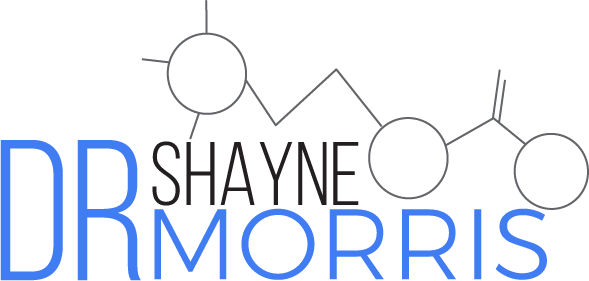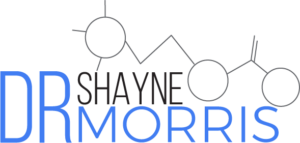By Dr. Shayne Morris
In recent years, the fields of nutrition and health have undergone a transformative shift. Gone are the days of one-size-fits-all dietary recommendations. Today, we understand that each individual is unique, with distinct genetic and microbiome profiles that influence their health, wellness, and nutritional needs. As a scientist and advocate for personalized medicine, I am excited to share insights into how we can tailor nutrition to optimize health by considering both microbiome and DNA.
The Microbiome: Your Inner Ecosystem
The human microbiome is a complex community of trillions of microorganisms, including bacteria, viruses, fungi, and other microbes, that live in and on our bodies. These microorganisms play a crucial role in numerous bodily functions, such as digestion, immune response, and even mental health. The composition of each person’s microbiome is unique, influenced by genetics, diet, environment, and lifestyle.
Why the Microbiome Matters in Nutrition:
- Digestion and Metabolism: Specific gut bacteria are responsible for breaking down different types of food. For instance, some people have bacteria that are more efficient at digesting fibers, while others may struggle with lactose.
- Nutrient Absorption: The microbiome influences the absorption of vitamins and minerals. An imbalance can lead to deficiencies, even if the diet appears adequate.
- Immune Function: A healthy microbiome supports a robust immune system, reducing the risk of infections and chronic diseases.
- Mental Health: The gut-brain axis highlights the connection between gut health and mental well-being, with the microbiome producing neurotransmitters like serotonin.
DNA: The Blueprint of Life
Our DNA contains the instructions for building and maintaining our bodies. While all humans share over 99% of their DNA, the small variations (known as single nucleotide polymorphisms or SNPs) can significantly impact health and nutritional needs. These genetic differences can affect how we metabolize nutrients, our susceptibility to certain diseases, and our overall health.
The Role of Genetics in Nutrition:
- Metabolic Rate: Genetic variations can influence how quickly or slowly we metabolize food, affecting weight management and energy levels.
- Nutrient Requirements: Some people have genetic variants that increase their need for specific vitamins and minerals, such as vitamin D or folate.
- Food Intolerances and Sensitivities: Genetics can predispose individuals to intolerances, like lactose or gluten, impacting dietary choices.
- Chronic Disease Risk: Certain genetic profiles can increase the risk of chronic conditions such as diabetes, heart disease, or cancer, which can be mitigated through targeted nutritional strategies.
Integrating Microbiome and DNA for Personalized Nutrition
The synergy between our microbiome and DNA offers a powerful approach to personalized nutrition. By analyzing both, we can develop highly tailored dietary plans that address individual needs and optimize health outcomes.
Steps to Personalized Nutrition:
- Microbiome Testing: By sequencing the gut microbiome, we can identify the specific bacterial strains present and their relative abundance. This information helps us understand how well an individual can digest certain foods, their risk for dysbiosis, and potential areas for dietary intervention.
- Genetic Testing: Genetic tests can reveal SNPs related to nutrient metabolism, disease risk, and other health factors. This data provides a blueprint for understanding an individual’s unique nutritional needs.
- Comprehensive Analysis: Integrating microbiome and genetic data allows for a comprehensive view of an individual’s health. This holistic approach considers how genetics and the microbiome interact and influence each other.
- Tailored Recommendations: Based on the analysis, we can create a personalized nutrition plan. This plan may include specific foods to support beneficial gut bacteria, supplements to address genetic deficiencies, and lifestyle changes to optimize overall health.
- Ongoing Monitoring and Adjustments: Health is dynamic, and so is our approach to personalized nutrition. Regular monitoring of the microbiome and health metrics ensures that dietary recommendations remain relevant and effective.
The Future of Health and Nutrition
The integration of microbiome and genetic data represents a frontier in personalized medicine and nutrition. This approach empowers individuals to take control of their health with precision and insight like never before. By understanding and leveraging the unique characteristics of our microbiome and DNA, we can create a future where optimal health is attainable for everyone.
In my practice and research, I have witnessed the transformative power of personalized nutrition. Patients who struggled with chronic conditions, unexplained symptoms, and general health concerns have found relief and improved well-being through tailored dietary interventions. The science is clear: personalized nutrition is not just a trend; it’s the future of health.
As we continue to explore the intricate connections between our genetics, microbiome, and health, I am excited about the possibilities. Together, we can unlock the potential of personalized nutrition and usher in a new era of individualized health and wellness.
Dr. Shayne Morris is a leading expert in microbiology and nutrition, dedicated to advancing our understanding of the microbiome and its impact on health.


